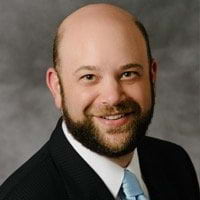What Is Mortgage Priority In Florida?
We had a great question about mortgage and lien priority come in from one of the Yesner Law Podcast listeners: “I bought property at a foreclosure auction. The foreclosure was filed by the second mortgage and the first mortgage was never notified or included as a defendant. Now the first mortgage is about to foreclose and take the property from me! How do I protect my investment?”
Great question, and one that we receive often. Unfortunately, the only way to protect your investment is to: (1) pay off the first mortgage in full, either through refinance or cash payment, or (2) obtain the original borrower’s permission or authorization to negotiate a lower pay off with the first mortgage company.
Florida Statute section 695.11, instructs the various clerks of court to stamp each recorded document with the Official Records Book and Page number, plus other identifying information at the time the document is recorded. The statute then provides, “An instrument bearing the lower number in the then-current series of numbers shall have priority over any instrument bearing a higher number in the same series.” Therefore, the first mortgage was recorded first in time and therefore has a lower book and page number, or instrument number, than a subsequent second or third mortgage. Because the first mortgage has “priority” it was proper for the second to exclude the first mortgage from the foreclosure case under Florida law.
One option to stop the foreclosure of the first mortgage lies within Florida Statute 45.0315, which provides: at any time before the foreclosure sale, the holder of any subordinate or inferior interest may prevent a foreclosure sale by paying the amount of money specified in the judgment of foreclosure, including the reasonable expenses of proceeding to foreclosure incurred and reasonable attorney’s fees of the creditor.
However, this statute leaves no room for negotiation with the lender, and the lenders are under no duty or requirement to negotiate with a non-borrower. Accordingly, the other available option for the investor who wants to negotiate with the lender is to obtain some form of written authorization from the homeowner. Absent written authorization from the borrower, Federal privacy laws prevent the lender from negotiating or discussing the loan with a third party.
Condominium and Homeowner Associations have some limited priority, because in most cases, the association declaration was recorded long before the homeowner purchased the property. Therefore, the declaration would have a lower clerk’s record number and have “priority” over even a first mortgage. Most declarations recognize this issue and have a written exception within the declaration making first mortgages superior to association liens. Otherwise, lenders would not loan money to homeowners buying in a condominium or homeowner’s association, and all association purchases would have to be cash only. Recognizing this, Florida law also “carves out” an exception for unpaid assessments. The “safe harbor” liability of a first mortgage to an association is limited to 12 months of unpaid assessments or 1% of the mortgage balance, whichever is less. If a third party buys at the foreclosure sale, the entire balance of unpaid assessments is due to the association.
For more information on mortgage foreclosure please subscribe to the Yesner Law Podcast, on iTunes and Stitcher. If you prefer, please contact us to schedule a free initial consultation to discuss your options at 727-261-0224 or email me directly at shawn@yesnerlaw.com.
Shawn M. Yesner, Esq., is the founder of Yesner Law, P.L., a Tampa-based boutique real estate and consumer law firm that helps clients eliminate debt by providing options, so they can live the lifestyle of their dreams. We assist clients with foreclosure defense, debt settlement, asset protection, the sale and purchase of real property, Chapter 7 liquidation, Chapter 13 reorganization, bankruptcy, landlord/tenant issues, short sales, and loan modifications in Tampa, Westchase, Odessa, Oldsmar, Palm Harbor, Clearwater, Pinellas Park, Largo, St. Petersburg, and throughout the greater Tampa Bay area.




